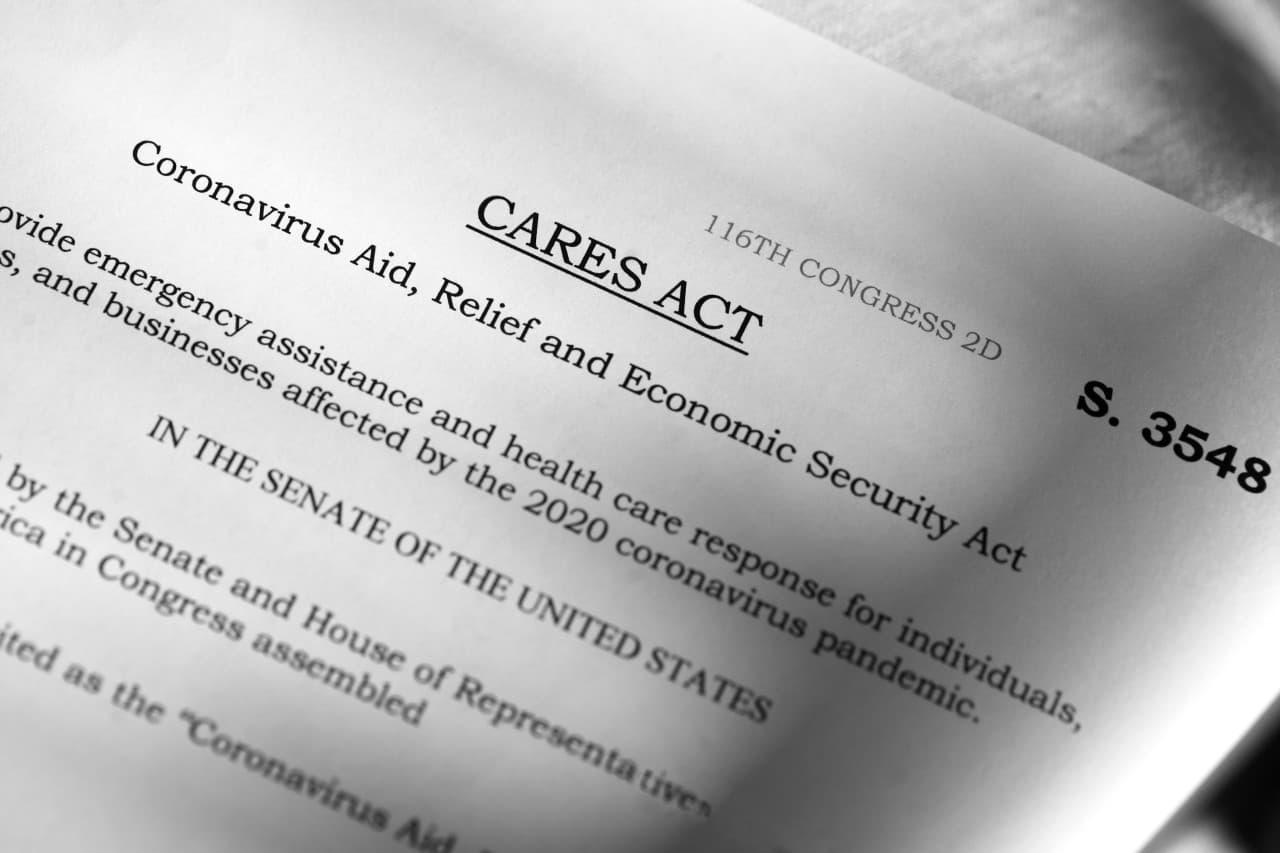Please note: Most of the information featured on this page is for historical purposes only. This guidance was issued during the COVID-19 pandemic.
Downloadpdf (PDF: 854 KB)
The following resources provide property owners with assistance during the COVID-19 crisis.
American Land Title Association (ALTA) has provided the following resources:
- Title, Settlement Companies Develop Safe Closing Protocols
- Visitor Health Screening Questionnaires: The NNA has developed health screening forms for the signing agent and borrower in order to protect all parties during a closing.
- Disaster Recovery and Business Continuity Plan: Having a business continuity plan is essential to keeping an operation going following any type of disaster or crisis.
- Common Issues Your Business May Encounter
- Keep Your Workplace Safe
- Keep Commercial Establishments Safe
Bank Regulators have also instructed banks and servicers to be proactive in extending help to homeowners:
- Federal Deposit Insurance Corporation (FDIC)
- Office of the Comptroller of the Currency (OCC)
- Board of Governor of the Federal Reserve System (Fed)
Banks have posted their own policies and ways for consumers to contact them for assistance:
Servicers (those who collect the payments for investors/banks and interact with consumers) are providing information for how homebuyers can reach out for assistance:
Center for Disease Control (CDC) has issued a nationwide eviction moratorium:
Effective September 4, 2020, the Centers for Disease Control and Prevention (CDC) ordered a nationwide eviction moratorium through December 31, 2020. The eviction moratorium was then extended to July 31, 2021. For additional information, please visit the NAR FAQs at nar.realtor/coronavirushousingproviders. Also, check out NAR's Rental Assistance Resources page for a list of information and resources from NAR and federal agencies, including the CFPB Rental Assistance Finder, to help renters and housing providers.
Consumer Financial Protection Bureau (CFPB)
Protect Your Credit: The CFPB is urging consumers to protect their credit during this pandemic.
Protect Yourself Financially: The CFPB has a number of resources focused on financial protection, both short and long term, such as paying bills, income loss, and scam targeting. Resources include contacts for housing and credit counselors, debt collectors, and state unemployment services.
Rental Assistance Finder: The CFPB Rental Assistance Finder connects renters and housing providers with the state and local programs that are distributing billions of dollars in federal assistance nationwide to help renters stay housed during the pandemic.
Department of Labor (DOL)
DOL has provided resources for employers and workers in responding to COVID-19 and including the impact on wages and hours worked and protected leave (these resources are primarily for businesses and employers).
Environmental Protection Agency (EPA)
Americans can continue to use and drink water from their tap as usual. EPA has provided important information about COVID-19 as it relates to drinking water and wastewater to provide clarity to the public. The COVID-19 virus has not been detected in drinking-water supplies. Based on current evidence, the risk to water supplies is low.
Federal Housing Administration (FHA)
Immediate Foreclosure and Evictions Relief for Homeowners for the Next 60 Days
The U.S. Department of Housing and Urban Development (HUD) has authorized the FHA to implement an immediate foreclosure and eviction moratoriumpdf for single family homeowners with FHA-insured mortgages for the next 60 days.
FHA Q&A Form
FHA continues to run single family business operations. FHA has created a Q&A form available on their website to keep interested parties updated on their procedures during the COVID-19 crisis. Please refer to https://www.hud.gov/program_offices/housing/sfh for the most current information.
Federal Housing Finance Agency (FHFA)
FHFA has instructed Fannie Mae, Freddie Mac and their servicers to be proactive in providing assistance to homeowners including forbearance. In addition, FHFA imposed a moratorium on eviction and foreclosures on mortgages backed by the GSEs:
- Statement from FHFA Director Mark Calabria on Coronavirus
- Press Release: FHFA Suspends Foreclosures and Evictions for Enterprise-Backed Mortgages
Fannie Mae and Freddie Mac
Fannie Mae and Freddie Mac have issued similar guidance:
- Homeowners who are adversely impacted by this national emergency may request mortgage assistance by contacting their mortgage servicer
- Foreclosure sales and evictions of borrowers are suspended for 60 days
- Homeowners impacted by this national emergency are eligible for a forbearance plan to reduce or suspend their mortgage payments for up to 12 months
- Credit bureau reporting of past due payments of borrowers in a forbearance plan as a result of hardships attributable to this national emergency is suspended
- Homeowners in a forbearance plan will not incur late fees
- After forbearance, a servicer must work with the borrower on a permanent plan to help maintain or reduce monthly payment amounts as necessary, including a loan modification
Fannie and Freddie have also created pages with additional information:
Federal Trade Commission (FTC)
The Federal Trade Commission provides advice on avoiding scams related to the coronavirus such as attempts to steal stimulus payments and mortgage rescue scams. Consumers can visit ftc.gov/coronavirus/scams for information or to report a scam.
Housing Counseling and Education
Counseling agencies are non-profit organizations that are dedicated to helping consumers avoid foreclosure and can be an invaluable resource. The U.S. Department of Housing and Urban Development (HUD) website has a list of HUD-approved counseling organizations, by state (www.hud.gov/counseling). Use the list as a starting point to find a counselor or call HUD at (800) 569-4287.
Internal Revenue Service (IRS)
The IRS has also created a Coronavirus Tax Relief section on their website with updated information for taxpayers and businesses (these resources are for businesses and not specifically for consumers).
- Tax Time Guide to Guard Personal, Financial, and Tax Information Year-Round (these resources are for businesses and not specifically for consumers).
- Income Tax FILING and PAYMENT Deadlines Extended: In light of COVID-19 crisis, the IRS on March 18 extended the income tax payment deadline for individual returns (as well as all other entities) until July 15, 2020. Two days later, the IRS also extended the tax filing deadline to July 15, 2020. Additional forms do not need to be filed to qualify for these extensions.
NAR Consumer Guides
NAR created two guides to help consumers facing financial challenges due to the coronavirus pandemic. The guides are available in English and Spanish.
Protect Your Investment helps homeowners who are struggling to meet their loan obligations due to COVID-19. The guide offers advice about working with trusted professionals like REALTORS® and housing counselors at HUD-approved agencies. The guide also provides information about payment options offered by lenders and tips for avoiding scams.
Protect Your Credit explains the provisions implemented by the Coronavirus Aid, Relief, and Economic Security (CARES) Act to protect consumers’ credit scores. The guide outlines consumers’ rights under the CARES Act, explains how to obtain a free credit report, and offers guidance on how to dispute inaccurate credit information.
Rural Development — U.S. Department of Agriculture (RD)
- The USDA has informedpdf lenders of a foreclosure and eviction moratorium for all USDA Single Family Housing Guaranteed Loans Program (SFHGLP) loans for a period of 60 days, in connection with the Presidentially declared COVID-19 National Emergency.
- RD will continue to provide loans and grants to rural communities across all of their programs.
- ReConnect applications will continue to be accepted with a March 31st deadline, and RD will then begin the review and award process.
- RD has granted authority to lenders that participate in their Single-Family Housing Guaranteed program so that these lenders can work with borrowers to ensure that homeowners will stay in their houses if they are having difficulty making payments.
- RD will issue guidance to their Single-Family Housing Direct borrowers to ensure they can also seek payment assistance if needed.
Small Business Administration (SBA)
The SBA has provided guidance and resources for businesses and employers to respond to COVID-19, including information regarding the economic injury disaster loans, local assistance, and SBA products & resources (these resources are for businesses and not for consumers specifically).
SBA Economic Injury Disaster Loans (EIDL)
The EIDL program supports small businesses facing temporary loss of revenue as well as working capital. They can be used to pay debts, including payroll, accounts payable, and other bills that cannot be paid due to a disaster. View the program summary and SBA Response to COVID-19pdf (PDF: 117 KB).
Student Debt
- The Department of Education announced that it will allow forbearance on federally-backed student loans for sixty days beginning on March 13, 2020. Likewise, the Administration has also waived all interest on student loans for this period. You must contact your loan servicer to being a forbearance.
- Servicers are sharing information how borrowers can seek remedies.
VA Home Loan Program
The Department of Veterans Affairs (VA) is providing information to keep Veterans and stakeholders safepdf while continuing the mission of the VA Home Loan Program:














